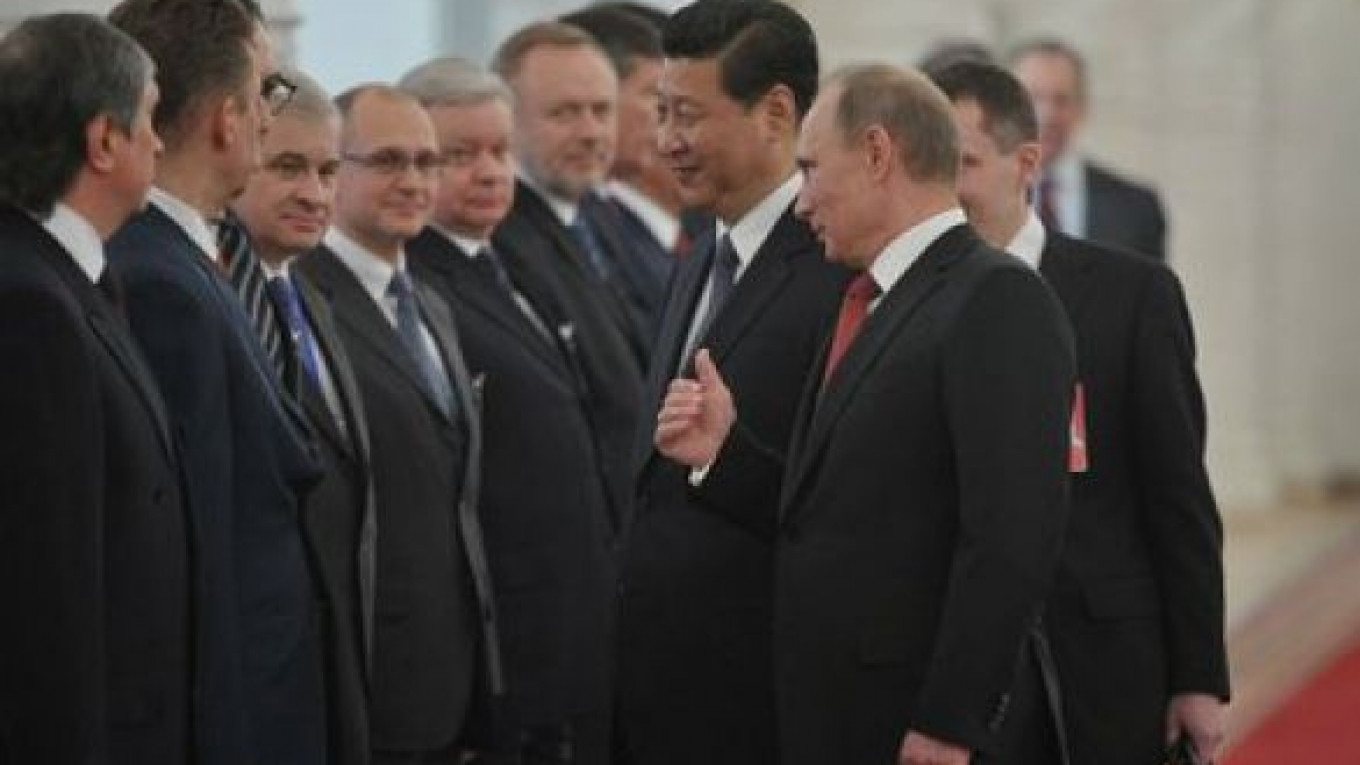The first day of Chinese President Xi Jinping's official visit to Russia on Friday saw the signing of 35 bilateral agreements touching on everything from natural gas to cultural exchange to rabbit husbandry, as well an overarching commitment to double bilateral trade by 2020.
As expected, the two sides devoted much of their attention to energy, signing agreements to cooperate on the construction of an oil refinery in the Chinese port city of Tianjin, as well as on projects to boost oil trade and send natural gas and electricity from the Russian Far East to China.
But also sealed deals on cultural centers and radio stations, as well as two separate agreements that will see the countries boost state and commercial cooperation on rabbit husbandry.
Bilateral trade rose by 11.2 percent last year to hit a record high of $88.2 billion, and Xi's visit was accompanied by a pledge to grow trade to $100 by 2015 and $200 billion by 2020, according to a statement on the Kremlin's website. China is already Russia's largest trading partner.
Xi and Putin used the occasion to affirm their "unprecedentedly" warm ties and shared intention to champion non-intervention and multi-polarity on the international level.
Russia and China have stood shoulder-to-shoulder against intervention in Syria's bloody civil war and pushed for restraint in addressing Iran and North Korean nuclear ambitions, positions that have often put them at loggerheads with the United States and its European allies.
Xi described Putin as his "old, good friend" and said the decision to make Russia his first foreign visit was a sign of the "strong and special nature" of Chinese-Russian ties.
A Message from The Moscow Times:
Dear readers,
We are facing unprecedented challenges. Russia's Prosecutor General's Office has designated The Moscow Times as an "undesirable" organization, criminalizing our work and putting our staff at risk of prosecution. This follows our earlier unjust labeling as a "foreign agent."
These actions are direct attempts to silence independent journalism in Russia. The authorities claim our work "discredits the decisions of the Russian leadership." We see things differently: we strive to provide accurate, unbiased reporting on Russia.
We, the journalists of The Moscow Times, refuse to be silenced. But to continue our work, we need your help.
Your support, no matter how small, makes a world of difference. If you can, please support us monthly starting from just $2. It's quick to set up, and every contribution makes a significant impact.
By supporting The Moscow Times, you're defending open, independent journalism in the face of repression. Thank you for standing with us.
Remind me later.






